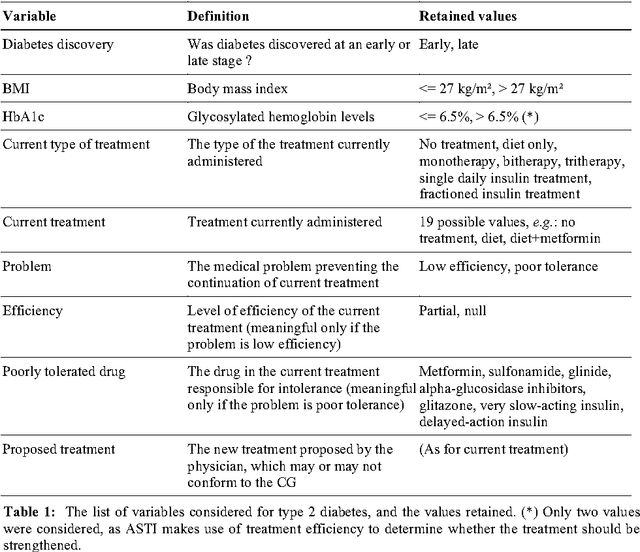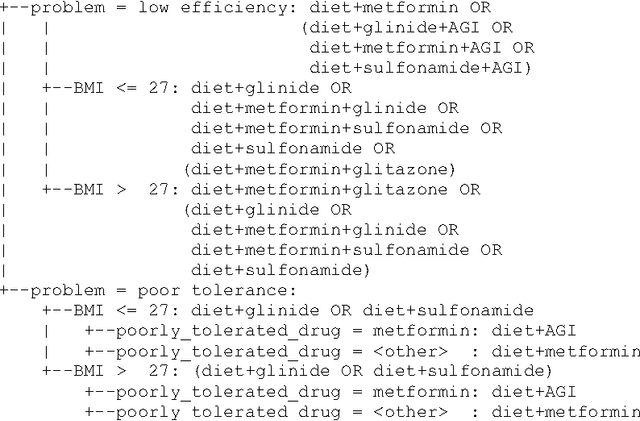Vahid Ebrahiminia
LIM\&BIO
A generic system for critiquing physicians' prescriptions: usability, satisfaction and lessons learnt
Dec 03, 2013
Abstract:Clinical decision support systems have been developed to help physicians to take clinical guidelines into account during consultations. The ASTI critiquing module is one such systems; it provides the physician with automatic criticisms when a drug prescription does not follow the guidelines. It was initially developed for hypertension and type 2 diabetes, but is designed to be generic enough for application to all chronic diseases. We present here the results of usability and satisfaction evaluations for the ASTI critiquing module, obtained with GPs for a newly implemented guideline concerning dyslipaemia, and we discuss the lessons learnt and the difficulties encountered when building a generic DSS for critiquing physicians' prescriptions.
Use of the C4.5 machine learning algorithm to test a clinical guideline-based decision support system
Dec 03, 2013

Abstract:Well-designed medical decision support system (DSS) have been shown to improve health care quality. However, before they can be used in real clinical situations, these systems must be extensively tested, to ensure that they conform to the clinical guidelines (CG) on which they are based. Existing methods cannot be used for the systematic testing of all possible test cases. We describe here a new exhaustive dynamic verification method. In this method, the DSS is considered to be a black box, and the Quinlan C4.5 algorithm is used to build a decision tree from an exhaustive set of DSS input vectors and outputs. This method was successfully used for the testing of a medical DSS relating to chronic diseases: the ASTI critiquing module for type 2 diabetes.
 Add to Chrome
Add to Chrome Add to Firefox
Add to Firefox Add to Edge
Add to Edge